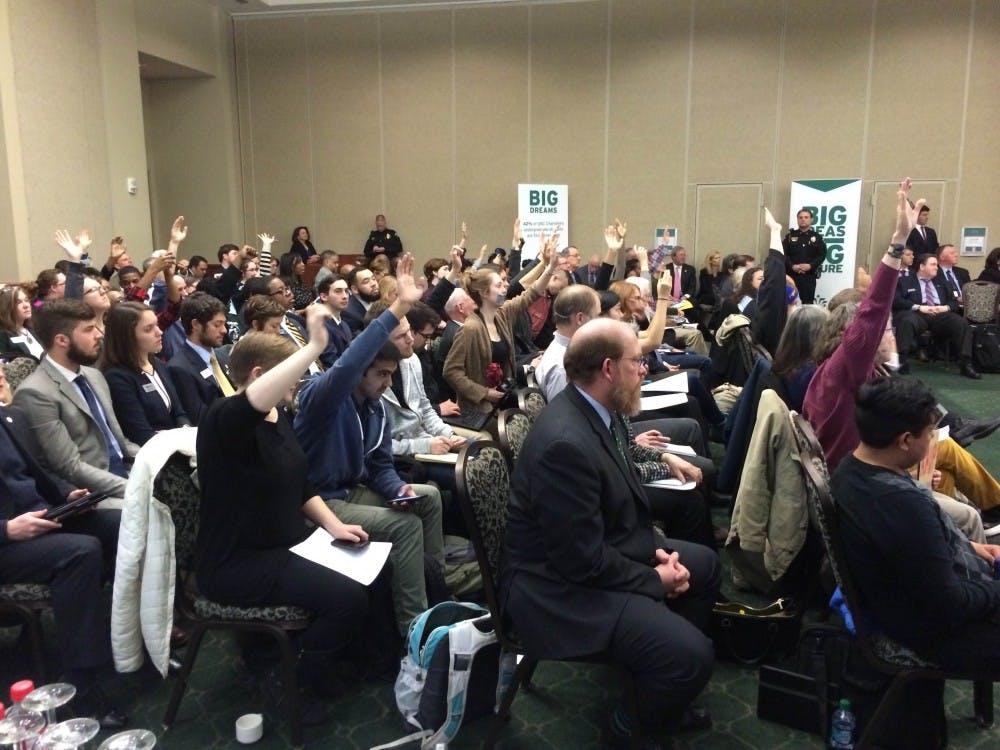CHARLOTTE — Amid students chanting, shaking fists and banging on doors, the UNC Board of Governors voted unanimously on Friday to approve the closing of three UNC-system centers, including Chapel Hill's Center on Poverty, Work and Opportunity.
Friday's meeting was marked by vocal, passionate protests that at times drowned out the proceedings. It was the culmination of a high-stakes review — the most comprehensive of its kind ever done in the UNC system — of the system's 237 centers and institutes over the past five months.
The decision to close the Center on Poverty has sparked widespread reaction in recent days from faculty, who've asserted that the board's actions target outspoken UNC law professor Gene Nichol, director of the poverty center, and therefore threaten academic freedom. Students have also criticized the board for not offering good enough reasons as to why they're closing specific centers.
As the board began to consider centers recommendations on Friday, protestors stood up one by one and began reading aloud editorials and letters about the centers and institutes. Board meetings typically don’t allow for public comment.
Board Chairman John Fennebresque repeatedly told them to “please be quiet" — but, as several students and UNC geography professor Altha Cravey disregarded the demands, raised their voices and kept reading, they were escorted out by police.
The students' actions eventually caused the board to move the meeting to a smaller room, where only board members, campus chancellors, staff and credentialed press were allowed. Though most members of the public were kept out, UNC-system President Tom Ross said later that the board was within the state's open meetings law.
Undeterred, students kept up a steady stream of loud chants just outside the room, yelling "let me in" and often overwhelming board members' comments.
Shannon Brien, a UNC junior and a member of the UNC BOG Democracy Coalition, said she and other students had planned for the board to try to silence them.
"Our expectation was that they'd continue escorting people out and maybe that they'd try to vote over us — talk over us and ignore us," she said.



